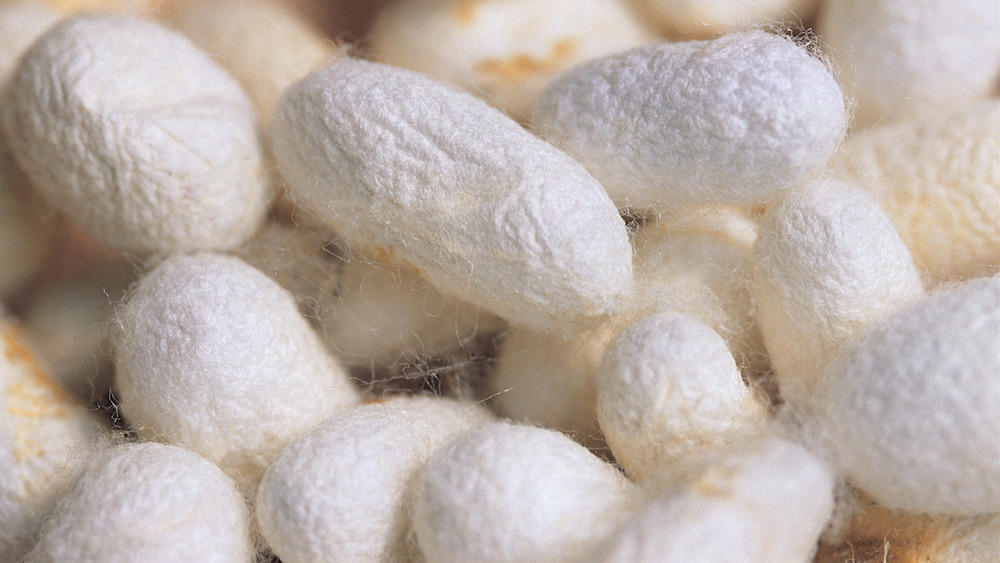This Is What King James I Tried To Raise At Buckingham Palace
King James I was the first Stuart king of Great Britain and is the King James who commissioned the King James Bible, which per the Times Literary Supplement has been called "the most important book in English religion and culture" and "the most enduring embodiment of Scripture in the English language." Not all of James I's projects were quite so successful, however, and at least one was a complete failure.
In 1609, silk was one of the most traded materials in the world. It was expensive and rare, and James I decided to try to use this to his advantage and developed a get-rich-quick scheme based right out of Buckingham Palace. His idea? To bring the silk industry to England. Silkworms are native to China, according to Britannica. The insects when young are voracious eaters and feed primarily on mulberry leaves. Once mature, silkworm caterpillars produce thread for their cocoons. It is this thread that is then harvested and turned into rare silk.
As reported by the Los Angeles Times, King James set his production idea in motion in 1609, ordering 100,000 mulberry trees be planted around England, which included establishing a black mulberry garden at Buckingham Palace. At King James' urging, early American colonists in Virginia also got in on the silkworm craze, attempting to raise them on red mulberry plants native to North America. Neither King James nor the Virginia colonists were successful.
King James I misses an important fact on raising silkworms
It turns out that silkworms eat white mulberry plants native to China, while black and red mulberry plants are both too tough for silkworms to produce the thread necessary for cocoons. Unfortunately, King James didn't do enough due diligence on the proper way to raise baby silkworms.
Per author Patricia Wright in The Strange History of Buckingham Palace, James ordered four acres of open fields walled off and cleared to serve as a mulberry tree orchard while "shiploads" were imported and distributed to officials who were tasked with convincing landowners to buy and plant them. Of course, the rest of the country wasn't quite so excited to "purchase sickly saplings for an indeterminate purpose," although some loyal subjects complied.
King James hired a man named William Stallange to establish his silk garden. Stallange had only bred silkworms as a hobby and was no expert, but he held more knowledge than most people in England at that time. Stallange moved into a "cosy manager's house" on the grounds of the palace, collected an annual salary, billed King James for his expenses, and stayed for so long that his son eventually inherited the post of Keeper of the Worms. It seems as if the Stallange family were the only ones to really benefit from King James' unsuccessful attempt to raise silkworms.

